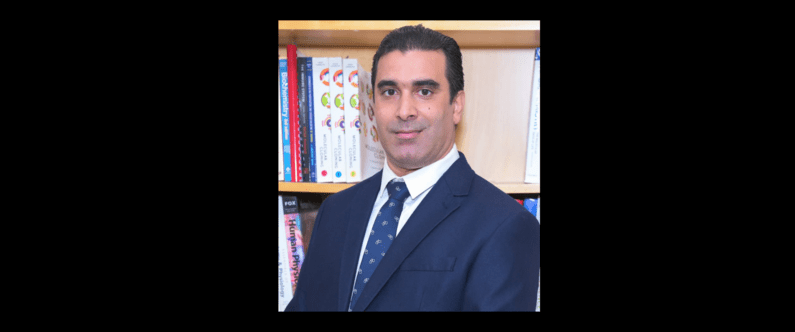WCM-Q webinar series discusses neurodegenerative diseases
 Dr. Ali Chaari
Dr. Ali Chaari
Weill Cornell Medicine-Qatar (WCM-Q) delivered an innovative educational series to explain the mechanism of protein misfolding and amyloid formation behind some of the most common neurodegenerative diseases, and to highlight recent advancements in treatment modalities.
Titled “Protein Misfolding Diseases and Neurodegeneration: From Experimental Approach to Clinical Therapy,” the yearlong series was attended by an impressive number of health professionals. The sessions were aimed at physicians, dentists, allied health practitioners, nurses, pharmacists, students, researchers, and educators.
Coordinated by the Division of Continuing Professional Development (CPD) at WCM-Q, the course was directed by Dr. Ali Chaari, assistant professor of biology at WCM-Q and expert on the role of amyloid proteins in neurodegenerative diseases.
The series was designed to help participants identify the risk factors and patterns of neurodegenerative diseases; the mechanisms for developing common neurodegenerative diseases; the latest developments in diagnosis and treatment; the importance of artificial intelligence in disease diagnosis; and the associations between physical activity, sleep, and cognitive function in older adults.
The sessions covered the molecular basis of neurodegenerative diseases; Parkinson’s Disease; Genetic Synucleinopathies; Intrinsically Disordered Proteins in human diseases; the impact of lifestyle on the brain; and why clinical trials for neurodegenerative diseases keep failing.
Another topic in the series was Alzheimer’s Disease, one of the most common forms of dementia—a syndrome that leads to the deterioration of cognitive function and behavior. With November marked as Alzheimer’s Disease Awareness Month, two webinars were particularly relevant in helping healthcare professionals stay up to date with the latest research and state of biomarkers in the early detection of the disease.
Dr. Chaari said: “There are major developments taking place in the diagnosis and therapy of protein misfolding diseases and neurodegeneration. It is therefore imperative that healthcare professionals are provided with a platform that offers them an opportunity to hear from leading experts in the field and stay informed on the latest research developments, thereby ensuring effective patient treatment and care.”
Course speakers included Dr. Tiago Outeiro, director of the Department of Experimental Neurodegeneration at University Medical Center in Göttingen; Dr. Angelo Antonini, professor of neurology and director of the Parkinson and Movement Disorders Unit and Study Center for Neurodegenerative Disease, University of Padua; Dr. Colin Masters, professor of dementia research at the Florey Institute of Neuroscience and Mental Health, University of Melbourne; Dr. Hamid Sohrabi, associate professor of psychology and clinical neurosciences, Murdoch University; Dr. Leonidas Stefanis, professor of neurology and neurobiology, University of Athens Medical School, and director of the First Department of Neurology, Hospital Eginitio; Dr. Gholam Redha Adeli, head of the Movement Disorder Section, consultant neurologist and neurophysiologist and movement disorders specialist, Hamad Medical Corporation; Dr. Vladimir Uversky, professor at the Department of Molecular Medicine, Morsani College of Medicine, University of South Florida; Dr. Michael Schöll, associate professor, Wallenberg Centre for Molecular and Translation Medicine, University of Gothenburg, and principal research fellow, Dementia Research Centre, University College London; and Dr. Rayaz Malik, professor of medicine and assistant dean for clinical investigations at WCM-Q.
In Qatar, WCM-Q is accredited as a provider of continuing medical education by the Department of Healthcare Professions (DHP) of the Ministry of Public Health (MoPH) and is accredited internationally by the Accreditation Council for Continuing Medical Education (ACCME).